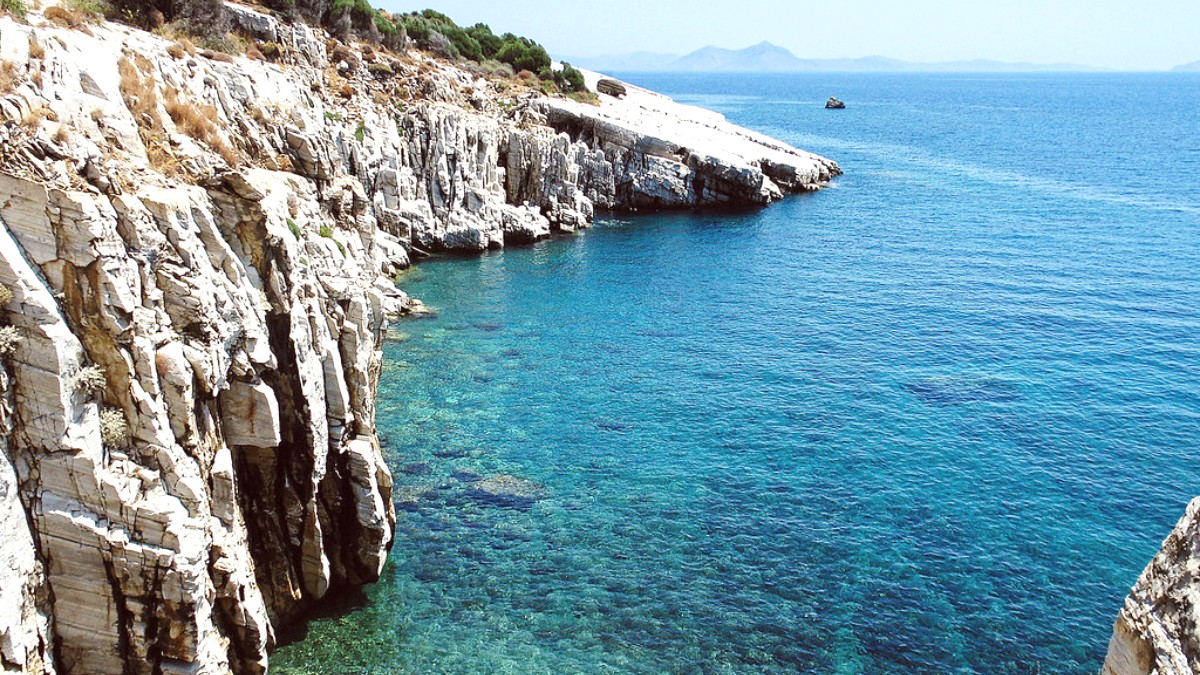
Greece
Ikarian cuisine, a distinct part of the Mediterranean diet, features unique local adaptations contributing to the island's longevity reputation.
It emphasizes fresh, seasonal, and locally sourced ingredients. Wild greens (Horta), legumes, vegetables, fruits, local olive oil, and fresh fish are staples. Meat consumption is less frequent. Wild herbs, local honey, and homemade wine reflect the island's self-sufficiency.
Lunch is typically 1:00 PM - 3:00 PM. Dinner is a late affair, often starting after 9:00 PM, especially in summer. Embrace this late dining schedule; arriving too early might find tavernas still preparing.
Ordering various appetizers (Mezedes) to share among the table is a common practice. Bread is often served with olive oil; sometimes a small charge applies, usually noted on the menu.
Many tavernas present a small complimentary dessert (e.g., fresh fruit, Greek yogurt with honey) or a shot of a local spirit (e.g., Raki, Tsipouro) on the house at the end of the meal. This is a gesture of hospitality.
A traditional Ikarian goat stew. Slow-cooked goat meat with potatoes, tomatoes, and various vegetables (often eggplant, zucchini, peppers) in a rich sauce, typically prepared in a clay pot.
Find it in traditional tavernas, especially in mountain villages like Christos Raches or Karavostamo.
Ikaria's distinctive local goat cheese. It is a fresh, soft, and slightly tangy cheese. Enjoy it with local honey, in salads, or as a simple appetizer.
You can purchase it at local markets and find it on many taverna menus.
Given Ikaria's coastal location, fresh fish is a must. Look for grilled or fried sardines, red mullet, and swordfish, contingent on the daily catch.
Seek Psarotavernas (fish tavernas) in coastal villages like Gialiskari, Evdilos, or Armenistis for the freshest options.
Fried dough balls, light and fluffy, drizzled generously with local honey and sprinkled with cinnamon. A delightful sweet treat.
Ikaria produces exceptional thyme honey. Purchase a jar to take home. It is often served with Greek yogurt or as a simple dessert.
Ikaria has very limited formal fine dining restaurants. The focus is on traditional, authentic, and often family-run tavernas.
These are abundant in all main towns and popular tourist areas like Agios Kirykos, Evdilos, Armenistis, and Gialiskari.
Local produce markets (Laiki agora) in larger towns present fresh fruits, vegetables, local cheeses, olives, and honey.
Relatively easy to find due to emphasis on plant-based ingredients. Many Mezedes (appetizers) are naturally vegetarian (e.g., Horta, Gigantes plaki - baked beans). Always confirm dishes are made without meat broth if strictly vegan.
Communication about ingredients is beneficial.
Very limited to non-existent for Halal/Kosher. For allergens, communication is recommended. Bring a Translation card with common allergens listed in Greek. Naturally gluten-free options include grilled fish, salads (without croutons), Horta.
Always ask for clarification.
Some local guesthouses offer informal classes focusing on Ikarian longevity cuisine.
Visits to small family farms, vineyards, or honey producers may be arranged.
The Panigiria (traditional festivals) are major food experiences, with roast goat and local wine.
Christos Raches is unique for its late-night dining culture.
Ikaria's simple cuisine often means fewer hidden ingredients, making it easier to manage dietary requirements.
Always inform staff about severe allergies.
Embrace naturally plant-based dishes like Horta and legumes, common staples in the Ikarian diet.
Consider self-catering for maximum control over ingredients.
The Ikarian lifestyle itself, with emphasis on fresh, local food, strong social connections, daily physical activity, and reduced stress, acts as a form of natural healing and longevity practice.
Ikaria's status as a 'Blue Zone' highlights the positive effects of its diet and lifestyle on well-being and lifespan.
Some local guesthouses or specialized tour operators may present informal cooking classes focusing on Ikarian longevity cuisine.
It is sometimes possible to visit small family farms, vineyards, or honey producers.
Many local producers sell their products directly, offering fresh, authentic items.
Dinner often starts after 9:00 PM, especially during the summer. Embrace this late schedule.
Don't arrive too early for dinner.
Ordering a variety of Mezedes (appetizers) to share is a common practice, enabling everyone to taste many dishes.
A great way to sample local flavors.
The essence of Ikarian cooking comes from simple, high-quality, and freshly sourced local ingredients.
Ikarian cuisine aligns with the island's reputation for longevity, emphasizing nutritious and traditional preparations.
Local olive oil forms the basis of almost every dish, used generously for cooking and dressing.
Exploring local bakeries (Fourni) for savory pies like cheese pies (Tiropita) and spinach pies (Spanakopita) is a delightful snack option.